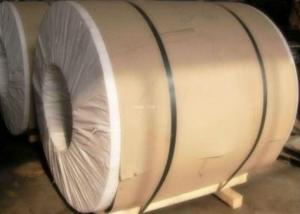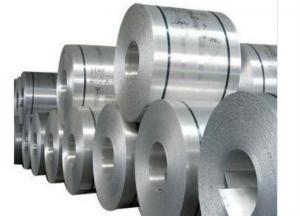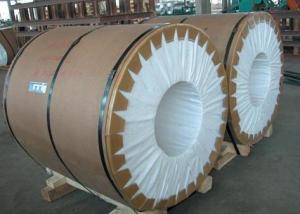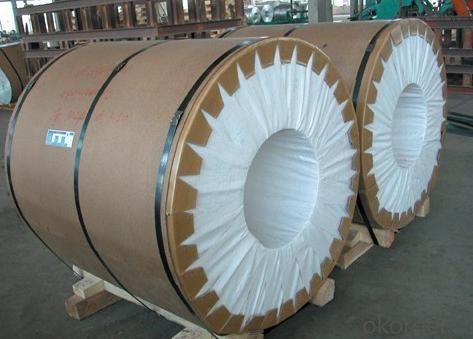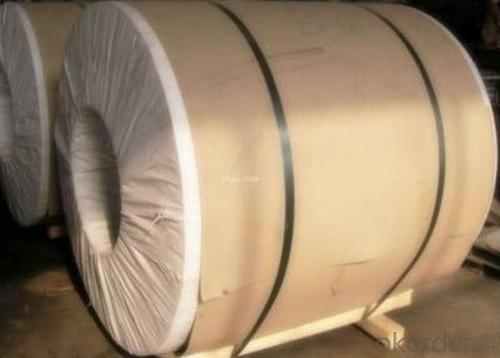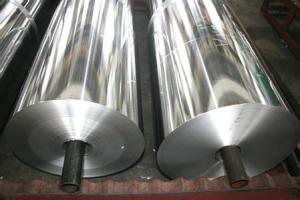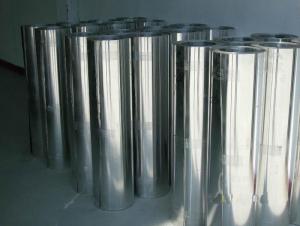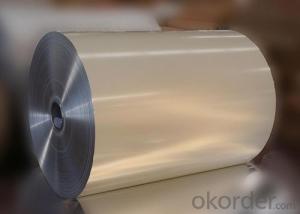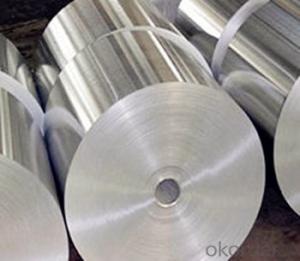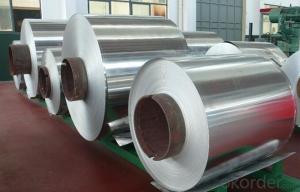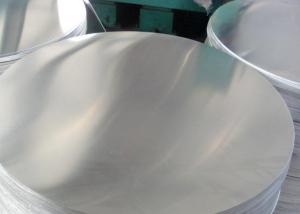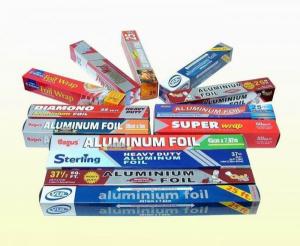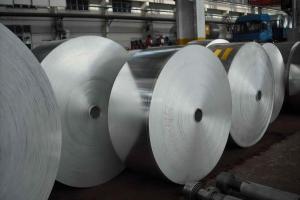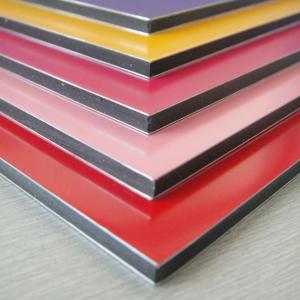Aluminum High Quality Aluminum Foil Stock
- Loading Port:
- China Main Port
- Payment Terms:
- TT or LC
- Min Order Qty:
- 20Tons m.t.
- Supply Capability:
- 10000Tons Per Month m.t./month
OKorder Service Pledge
OKorder Financial Service
You Might Also Like
Quick details of High Quality Aluminum Foil Stock
Alloy: 8011
Temper: H14/H16/H24/H26
Specifications of High Quality Aluminum Foil Stock
Thickness & Tolerance: 0.28 mm - 0.3 mm (+/-0.01 mm)
Width & Tolerance: 1000-2020mm (+/-1 mm)
Core I.D: 405/505/508mm
Surface Quality: good appearance with no-crack and well-distribute grain.
Build Up: tight slit edges free from cracks, layer to layer shift not more than 2 mm.
Profile: -0/+1%
Flatness: mill flatness coil having slight edge waviness rather than center buckles shall be acceptable
Rolling Performance: re-rollable to the final desired gauges
Standard: GB/T3198/ASTM-B209
Usage/Application of High Quality Aluminum Foil Stock
The aluminium foil stock for final rolling gauges down to min 6 micron
Packaging & Delivery of High Quality Aluminum Foil Stock
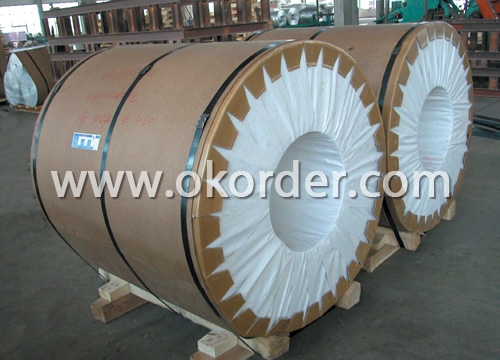
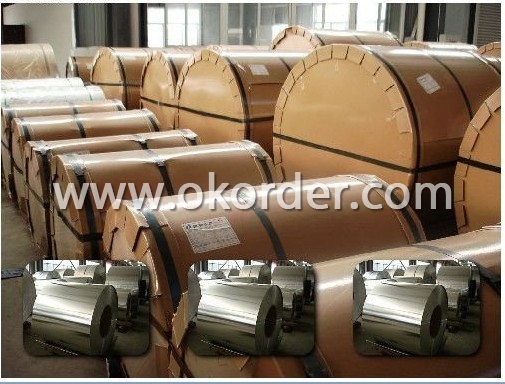
- Q: Is it possible to create jewelry using pure aluminum?
- <p>Yes, pure aluminum can be used to make jewelry, but it's not commonly used for fine jewelry due to its lower value and potential for oxidation. While it is lightweight and affordable, it lacks the luster and durability of precious metals like gold, silver, or platinum. Aluminum can tarnish and may cause allergic reactions in some individuals. It is more commonly used in costume jewelry or for specific designs where its properties are advantageous.</p>
- Q: Is it possible to utilize aluminum to enhance the durability and efficiency of batteries?
- <p>Yes, aluminum can be used to make batteries more durable and efficient. Aluminum's lightweight, high conductivity, and corrosion resistance make it a favorable material for battery components. In particular, aluminum-air batteries leverage aluminum's ability to provide a high energy density. Additionally, research is ongoing to improve lithium-ion batteries by using aluminum as a component in the anode, which can potentially increase energy storage capacity and lifespan. However, challenges such as aluminum's reactivity and the development of efficient recycling methods must be addressed for widespread adoption in battery technology.</p>
- Q: Can reusing old aluminum foil be utilized for cleaning tasks in kitchen or bathroom areas?
- <p>Yes, old aluminum foil can be used for cleaning purposes in a kitchen or bathroom. It's particularly effective for scrubbing pots and pans, removing burnt-on food, and cleaning glass and tiles. The shiny side of the foil can be used to remove scuff marks from floors and the dull side can be used to scrub away stubborn stains. However, it's important to avoid using foil that has been in contact with acidic or corrosive substances, as it may have become damaged or weakened, and could potentially scratch surfaces. Always test on a small, inconspicuous area first to ensure it doesn't damage the surface you're cleaning.</p>
- Q: Is it possible to recycle aluminum and what are the benefits of doing so?
- <p>Yes, aluminum can be recycled, and it is one of the most recycled materials in the world. Recycling aluminum saves up to 95% of the energy needed to produce new aluminum from raw materials. It also reduces greenhouse gas emissions and conserves natural resources. Recycled aluminum can be used in various applications, from beverage cans to construction materials, making it an environmentally friendly and economical choice.</p>
- Q: This question asks about the energy consumption involved in the recycling process of aluminum.
- <p>Recycling aluminum requires significantly less energy compared to producing aluminum from raw materials. It takes about 5% of the energy needed to produce new aluminum from bauxite ore. This energy efficiency is due to the fact that recycling aluminum involves melting down the metal, which requires less energy than the extraction and refining processes involved in primary production. The exact amount of energy saved can vary depending on factors such as the purity of the recycled material and the efficiency of the recycling process, but overall, recycling aluminum is a much more energy-efficient method than mining and refining new aluminum.</p>
- Q: Explain the interaction between aluminum and oxygen.
- <p>Aluminum and oxygen have a reactive relationship. When aluminum is exposed to oxygen, it forms a thin, protective layer of aluminum oxide on its surface. This oxide layer prevents further oxidation of the aluminum beneath it, making aluminum a corrosion-resistant metal. The reaction is exothermic and can be represented by the chemical equation: 4Al + 3O2 鈫?2Al2O3. This aluminum oxide layer is hard and stable, which is why aluminum is widely used in various applications where resistance to corrosion is important.</p>
- Q: This question asks if there are differences in how long different types of aluminum cookware can last.
- <p>Yes, there are differences in the durability of different types of aluminum cookware. Anodized aluminum cookware is more durable and resistant to scratches and corrosion compared to non-anodized aluminum. Cast aluminum cookware is heavier and more durable than aluminum clad cookware, which is a layer of aluminum bonded to a stainless steel core. The thickness of the aluminum also affects durability, with thicker aluminum being more resistant to warping and lasting longer. Proper care and maintenance also play a significant role in the longevity of aluminum cookware.</p>
- Q: This question asks about the methods to guarantee that the aluminum content in products is within safe limits.
- <p>To ensure that products do not contain excessive amounts of aluminum, implement a strict quality control process. This includes sourcing raw materials from suppliers who adhere to strict aluminum content limits, conducting regular testing of products using advanced analytical techniques such as Inductively Coupled Plasma Mass Spectrometry (ICP-MS) or Atomic Absorption Spectroscopy (AAS). Establishing and following Good Manufacturing Practices (GMP) is crucial, along with continuous monitoring and improvement of production processes. Additionally, staying updated with regulatory guidelines and setting internal limits that are below the legal maximum levels can help maintain safety and compliance.</p>
- Q: Explain the economic and job market implications of using aluminum.
- <p>The use of aluminum has significant impacts on the economy and job market. It is a key material in various industries, including construction, automotive, aerospace, and consumer goods, which drives demand and economic growth. Aluminum production and processing create jobs directly in mining, refining, and manufacturing sectors, and indirectly in related services and supply chains. Additionally, its lightweight and corrosion-resistant properties make it valuable for energy-efficient transportation, contributing to environmental sustainability and opening new job opportunities in green technologies. However, it also presents challenges such as the need for energy-intensive production processes and the management of waste, which require innovative solutions and can lead to job creation in recycling and environmental management.</p>
- Q: Explain the different methods used for recycling aluminum.
- <p>Aluminum recycling methods primarily include mechanical recycling and re-melting. Mechanical recycling involves cleaning, shredding, and sorting aluminum waste before reprocessing it into new products. Re-melting involves melting aluminum scrap and then casting it into new aluminum products. This process is energy-efficient, as it requires only 5% of the energy needed to produce aluminum from raw materials. Additionally, aluminum can be recycled indefinitely without losing its properties, making it one of the most recyclable materials.</p>
Send your message to us
Aluminum High Quality Aluminum Foil Stock
- Loading Port:
- China Main Port
- Payment Terms:
- TT or LC
- Min Order Qty:
- 20Tons m.t.
- Supply Capability:
- 10000Tons Per Month m.t./month
OKorder Service Pledge
OKorder Financial Service
Similar products
Hot products
Hot Searches
Related keywords
